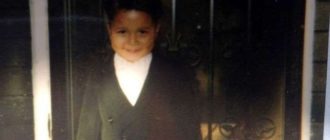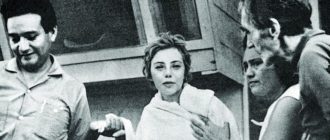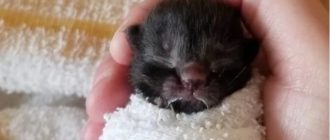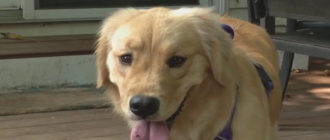My grandmother once said, “The best legacy isn’t money—it’s love.” Little did we know she would prove this in the most unexpected way, teaching us all a lesson none of us would ever forget.
My name’s Emily, and when I was just fifteen, my Grandma Rosalind, at 89 years old, gave me a lifelong lesson. It wasn’t through lectures or stories, but through a brilliant scheme involving fake deafness and a shocking inheritance.
It was summertime, and while my friends were at beach parties, I spent my days with Grandma. Her warm smile and twinkling eyes always filled me with joy. One afternoon, she called me over while we were pruning roses in the garden. “Emily, promise me something,” she said, her voice tender but serious. “Always stay true to yourself, no matter what.”
I didn’t think much of it at the time, though I found her words a bit mysterious. A week later, everything changed. Dad came home pale-faced and shaken, announcing that Grandma had suddenly lost her hearing. My heart shattered—how could this be? Just days before, she’d been fine, sharing old family stories and laughing.
Despite her new diagnosis, we still planned a grand celebration for her 89th birthday. But something felt off. At the party, as I sat showing Grandma old pictures on my phone, I overheard Uncle Bill talking loudly behind us. “If I don’t get the house, I’ll sue,” he growled. “She’s too old to even know what she’s doing anymore.”
Aunt Sarah chimed in with equal disdain, “I can’t wait to take over that beautiful farmhouse she has. Once she’s gone, it’s ours.”
I was furious. How could they talk about Grandma like that? The same people who were just smiling at her minutes before were now scheming behind her back. I glanced at Grandma, half relieved that she couldn’t hear their cruel words. Or so I thought.
That night, after everyone had left, I sat with Grandma by the window. She turned to me and, to my shock, spoke clearly. “Emily, I can hear just fine.”
I froze. “What? You’re not deaf?”
She smiled knowingly. “No, sweetheart. I’ve been pretending.” She explained that she had wanted to see how her family truly felt about her—and what they would say when they thought she couldn’t hear.
Over the next few days, Grandma and I devised a plan. We secretly recorded the harsh words of my uncles and aunts, capturing their true feelings about Grandma and her estate. It wasn’t about revenge, she reminded me, but about revealing the truth.
The things they said were heart-wrenching. “I wish she’d just hurry up and die,” Aunt Sarah sneered on one recording. “I’ve already got plans for that beach house.”
Each comment was a stab to the heart, but Grandma remained calm. “Sometimes,” she said softly, “those who should love us the most are the ones who hurt us the deepest.”
A week later, Grandma passed away peacefully in her sleep. At her funeral, my relatives were full of false tears and empty condolences, knowing that the reading of her will was just around the corner.
Three days later, we gathered at the lawyer’s office. Mr. Thompson, our family lawyer, began by placing several small boxes on the table, each one with a name on it—except mine. “Your grandmother left something special for you, Emily,” he told me.
One by one, my relatives opened their boxes to find small recorders. When Uncle Bill pressed play, the room filled with his own voice: “I can’t wait for the old bat to kick the bucket.” Aunt Sarah’s recording was next: “Why won’t she just die already? I’ve got plans for that house!”
Their faces drained of color as the reality of what they’d said hit them. They had no idea Grandma had heard every word.
Uncle Bill, red with rage, pointed at me. “You set us up!”
I stood my ground. “No, Uncle Bill. You did this to yourselves.”
When the final recording played, I couldn’t help but smile. Grandma had outsmarted them all.
After the recordings were finished, Mr. Thompson handed me an envelope. Inside was a letter in Grandma’s elegant handwriting: “My dearest Emily, you were the only one who loved me for who I am, not for what I had. That’s why I’m leaving everything to you. But remember, the greatest inheritance is love.”
Tears streamed down my face as I held the letter close. Grandma had left me something far more valuable than money—she had given me the gift of knowing what true love and family really mean.
As for my aunts and uncles, each of them received an envelope with a single dollar and a note from Grandma: “This should be enough. Good luck!”
The fallout was chaotic. Uncle Bill threatened to contest the will, but Mr. Thompson quickly shut him down, assuring everyone that Grandma’s decisions were made with a sound mind.
Dad pulled me aside as we left. “I’m proud of you, Emily. I’m sorry I didn’t see what was happening sooner.”
I hugged him tightly. “It’s okay, Dad. Grandma knew you loved her. That’s what matters.”
It’s been ten years since Grandma passed, but her lessons stay with me. She taught me that love, not money or possessions, is the greatest inheritance of all. And sometimes, those who speak the least have the most to say. You just have to listen.











